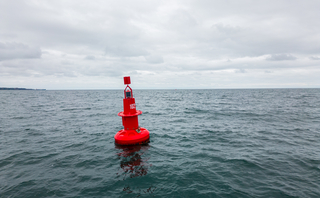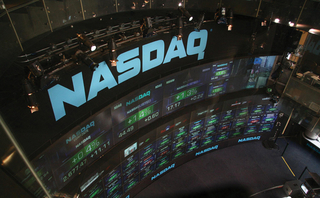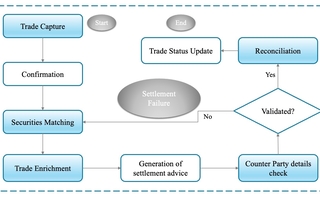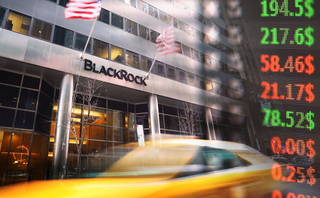LSEG bolsters non-cleared ambitions with Acadia deal
The exchange group plans to build ‘a clearing house for the non-cleared world’, says LCH CEO Maguire.
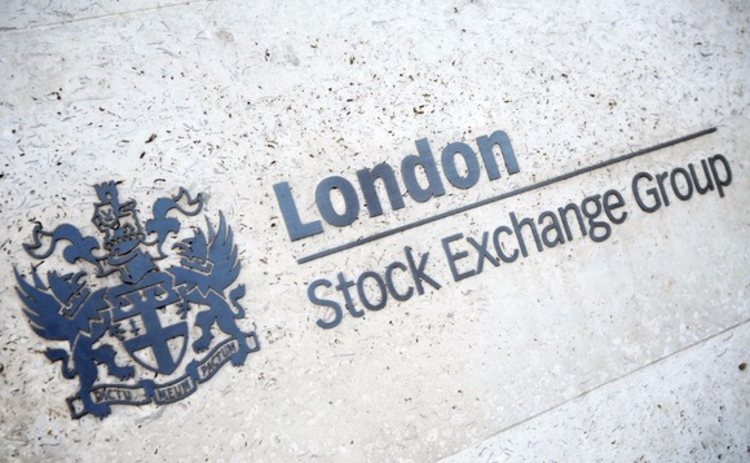
The London Stock Exchange Group aims to turbo-charge the growth of a division that provides post-trade services for non-cleared derivatives with the acquisition of margin processing firm Acadia.
The planned deal, which was announced on December 19 and is pending regulatory approvals, follows LSEG’s £274 million takeover of post-trade optimization provider Quantile Technologies, which closed earlier this month.
Both acquisitions were made with an eye on bolstering the growth of LSEG’s SwapAgent platform, which brings bilateral trades under a standard credit support annex (CSA) and unlocks many of the side-benefits of clearing, such as compression, optimization and straight-through processing.
This is about building the complementary clearing house that’s not a CCP
Daniel Maguire, LSEG
“The intent is to build out that clearing house for the non-cleared world across multiple asset classes, in a centralized, open access infrastructure,” says Daniel Maguire, head of LSEG’s post-trade division and chief executive of LCH Group.
“Not everybody wants to clear everything. This is about building the complementary clearing house that’s not a CCP [central counterparty]. We’re not going to be doing default management, but we’re building all that infrastructure and expertise that we’ve got in the clearing space.”
The push into non-cleared markets comes as a multi-year run of strong growth in cleared derivatives volumes shows signs of slowing down. Cleared notional at LCH SwapClear dropped 13% to $921 trillion in 2021, but has bounced back 26% over the first three quarters of 2022. Meanwhile, the bilateral SwapAgent platform has seen average daily volume more than double to $11.9 billion in the third quarter of this year.
The growth at SwapAgent is being driven by a renewed quest for efficiency in bilateral markets, which have been transformed by the rollout of the non-cleared margin rules. More than 1,000 buy-side firms were swept into the regime as part of the final compliance phase in September, greatly expanding the universe of bilateral trades that must be collateralized daily.
Acadia sits at the center of this surge in margin activity. Established in 2009 by a consortium of banks, the firm handles more than $1 trillion in daily collateral exchanges for 3,000 clients, including 2,000 with direct connectivity.
“We see a very big opportunity since we’re covering virtually all of the in-scope UMR participants, while LSEG has taken steps to take some of those core clearing house functions and making them available to the OTC market through SwapAgent,” says Chris Walsh, chief executive of Acadia.
He reckons the combined business could unlock significant cost savings and reduce risk in the market. “What we see over time is the ability to connect these and really reduce the risk and costs clients incur in the post-trade space. Once they start looking at a single trade representation rather than dual calculating models, settlement processes that could include some netting, start to create the fundamental changes that really strip cost, capital and risk out of the market,” says Walsh. “I think we have the perfect two sets of assets to come together and address those needs.”
Following the acquisition, Walsh will join the senior management team at LSEG’s post-trade division, which already includes Andrew Williams, chief executive of Quantile.
Maguire says Acadia’s multi-asset solutions will bring a broader range of bilateral market participants within LSEG’s orbit and hasten the expansion of SwapAgent’s services beyond cross-currency swaps and swaptions.
“Swap Agent is on a journey, but it is very rates and cross-currency swaps centric. We have the goal to be doing valuation and risk as well on other asset classes, from FX to credit to equity derivatives. It helps us to accelerate that,” says Maguire.
“This is a five- to 10-year plan to build clearing capability, momentum and scale. It’s really a multi-asset non-cleared marketplace, and we’re building up that co-ordinated centralized offering to bring more standardization and all the benefits we can bring on top of that.”
LSEG already holds a 16% stake in Acadia, which it purchased in 2018 as part of an early push beyond listed and cleared products. A consortium of large dealers holds just over 50% of the vendor, while the remainder is held by CME Group, Euroclear and the Depository Trust and Clearing Corporation.
Maguire says the deal, which would see the exchange group take full ownership of Acadia, will not change the open access model of Acadia or SwapAgent.
“The business philosophy of LSEG is one of open access,” says Maguire. “This is an ecosystem where connectivity has to happen. It’s fundamentally part of the operating model and what customers want.”
The terms of LSEG’s planned acquisition were not disclosed. As a listed entity, the exchange group must reveal the cost of material acquisitions, which account for more than 5% of the buyer’s market capitalization. In LSEG’s case, this would be set at £1.98 billion. Terms of the Quantile acquisition were announced in advance as the vendor’s co-founder and chairman, Stephen O’Connor, was a non-executive director on LSEG’s board.
Only users who have a paid subscription or are part of a corporate subscription are able to print or copy content.
To access these options, along with all other subscription benefits, please contact info@waterstechnology.com or view our subscription options here: http://subscriptions.waterstechnology.com/subscribe
You are currently unable to print this content. Please contact info@waterstechnology.com to find out more.
You are currently unable to copy this content. Please contact info@waterstechnology.com to find out more.
Copyright Infopro Digital Limited. All rights reserved.
You may share this content using our article tools. Printing this content is for the sole use of the Authorised User (named subscriber), as outlined in our terms and conditions - https://www.infopro-insight.com/terms-conditions/insight-subscriptions/
If you would like to purchase additional rights please email info@waterstechnology.com
Copyright Infopro Digital Limited. All rights reserved.
You may share this content using our article tools. Copying this content is for the sole use of the Authorised User (named subscriber), as outlined in our terms and conditions - https://www.infopro-insight.com/terms-conditions/insight-subscriptions/
If you would like to purchase additional rights please email info@waterstechnology.com
More on Trading Tech
For MarketAxess, portfolio trading buoys flat revenue in Q3
The vendor is betting on new platforms like X-Pro and Adaptive Auto-X, which helped forge a record quarter for platform usage.
Quants look to language models to predict market impact
Oxford-Man Institute says LLM-type engine that ‘reads’ order-book messages could help improve execution
JP Morgan pulls plug on deep learning model for FX algos
The bank has turned to less complex models that are easier to explain to clients.
Nasdaq says SaaS business now makes up 37% of revenues
The exchange operator’s Q3 earnings bring the Adenza and Verafin acquisitions center stage.
Harnessing generative AI to address security settlement challenges
A new paper from IBM researchers explores settlement challenges and looks at how generative AI can, among other things, identify the underlying cause of an issue and rectify the errors.
The causal AI wave could be the next to hit
As LLMs and generative AI grab headlines, another AI subset is gaining ground—and it might solve what generative AI can’t.
Waters Wrap: Operational efficiency and managed services—a stronger connection
As cloud, AI, open-source, APIs and other technologies evolve, Anthony says the choice to buy or build is rapidly evolving for chief operating officers, too.
BlackRock forecasts return to fixed income amid efforts to electronify market
The world's largest asset manager expects bond markets to make headway once rates settle.
